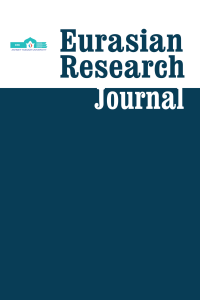NATO-RUSSIA’s ‘CONFLICTUAL RELATIONSHIP’: ‘INSTABILITY’ AS A DEFINING FACTOR IN THE POLITICAL INTERACTION BETWEEN MOSCOW AND THE ATLANTIC ALLIANCE
Abstract
NATO-Russia’s conflictual relationship represents one of the main elements of the international system, at least since the end of the Cold War, having a significant impact in the rivalry involving Great Powers, such as: the United States, Russia, Germany, Great Britain, France and others. In fact, this intricate relationship between the Atlantic Alliance and Moscow has been tainted by mistrust, mutual accusations and ‘security dilemma’ situations, that has brought a constant state of tension in NATO-Russia interactions over the years. This paper aims to summarize, starting from the Cold War era, the main political events that led to the establishment of mistrust between these two actors, bringing forth both NATO’s and Russia’s views about how each other’s actions
prompted long-standing perceptions of enmity that culminated in the current scenario of an almost ‘impending war’ due to the situation in Ukraine.
References
- Baldwin, David A. (Ed.) (1993). Neorealism and Neoliberalism: The Contemporary Debate. New York: Columbia University Press.
- Bezerra, Valdir da Silva (2018). “A percepção pública sobre a política externa russa nos anos 2000: a atuação de Moscou no espaço pós-soviético e além segundo o olhar dos russos” (Public perception of Russian foreign policy in the 2000s: Moscow’s role in the post-Soviet space and beyond from the perspective of Russians). Revista Defesa e Segurança (RDS), No. 3: 49 - 66.
- Charter for European Security. Organization for Security and Cooperation in Europe (1999). Retrieved from: https://www.osce.org/files/f/documents/4/2/17502.pdf. Accessed: 15.08.2021.
- Constitution of Ukraine. Retrieved from: https://zakon.rada.gov.ua/laws/show/254%D0%BA/96-%D0%B2%D1%80#Text. Accessed: 07.07.2021.
- Costa Junior, Pedro Donizete (2022). “A Nova Ordem internacional policêntrica” (The new polycentric international order). Jornal da USP. Retrieved from: https://jornal.usp.br/artigos/a-nova-ordem-internacional-policentrica/. Accessed: 07.04.2022.
- de Wijk, Rob (2014). The Art of Military Coercion: Why the West´s Military Superiority Scarcely Matters. Amsterdam University Press.
- Dugin, Alexandr (2016). Geopolítica da Rússia Contemporânea (Geopolitics of Contemporary Russia). Institute of Advanced Studies in Geopolitics and Auxiliary Studies. Lisbon.
- Freire, Maria Raquel (2008). As eleições presidenciais na Rússia: Continuidade na mudança (Russian presidential elections: Continuity in change). Universidade Nova de Lisboa. Retrieved from: https://estudogeral.sib.uc.pt/jspui/bitstream/10316/9605/1/MRFreire_OccasionalPaper32_IPRI_2008.pdf. Accessed: 12.09.2021.
- Kissinger, Henry (2014). World Order. Rio de Janeiro: Objetiva. Klein, Margarete (2009). Russia´s military capabilities. Berlin: SWP Research Paper.
- Levada Analytical Center (2016). Russian public opinion 2013-2015. Retrieved from: http://www.levada.ru/cp/wp-content/uploads/2016/01/2013-2015-Eng1.pdf. Accessed: 17.09.2021.
- Lukyanov, Fyodor (2016). “Putin’s foreign policy: The quest to restore Russia’s rightful place”. Foreign Affairs, 95(3): 30-37.
- Mankoff, Jeffrey (2011). Russian foreign policy: The return of great power politics. Council on Foreign Relations. Retrieved from: https://www.youtube. com/watch?v=gggdw1CEJGU. Accessed: 27.09.2021.
- Mazat, Numa and Franklin Serrano (2012). A Geopolítica da Federação Russa em Relação aos Estados Unidos e à Europa: Vulnerabilidade, Cooperação e Conflito (The Geopolitics of the Russian Federation in Relation to the United
- States and Europe: Vulnerability, Cooperation and Conflict). In: Alves, Andre Augusto De Miranda Pinelli (org.) Rússia no Século XXI: O Renascimento de uma Potência? Brasília (Russia in the 21st Century: The Revival of a Power? Brasilia).
- North Atlantic Treaty Organization. A Short History of NATO. Operations and missions: Past and present. Retrieved from: https://www.nato.int/cps/en/natohq/topics_52060.htm. Accessed: 15.08.2021.
- North Atlantic Treaty Organization. A short history of NATO. Retrieved from: https://www.nato.int/cps/en/natohq/declassified_139339.htm#top. Accessed: 25.08.2021.
- Oldberg, Ingmar (2010). Russia´s great power strategy under Putin and Medvedev. Swedish Institute of International Affairs: 2010. Retrieved from: http://www.ui.se/upl/files/44240.pdf. Accessed: 12.04.2021.
- Ozgoker, Ugur and Serdar Yilmaz (2016). “NATO and Russia’s security dilemma within the European Union’s far neighbors”. International Relations and Diplomacy, 4(10): 650-665.
- Putin, Vladimir (2007). Putin’s prepared remarks at 43rd Munich Conference on Security Policy. The Washington Post. Retrieved from: http://www.washingtonpost.com/wpdyn/content/article/2007/02/12/AR2007021200555.html. Accessed: 22.02.2021.
- Putin, Vladimir (2016). Interview to German newspaper Bild. Retrieved from: http://en.kremlin.ru/events/president/news/51154. Accessed: 18.05.2021.
- Putin, Vladimir (2021). Article by Vladimir Putin “On the historical unity of Russians and Ukrainians”. Kremlin. Retrieved from: http://en.kremlin.ru/misc/66182. Accessed: 20.08.2021.
- Sloboda, Pedro Muniz (2014). “A anexação da Crimeia pela Rússia: Uma análise jurídica” (Russia’s annexation of Crimea: A legal analysis). Revista Eletrônica de Direito Internacional, No. 13: 1-22.
- Snyder, Robert S. (2005). Bridging the realist/constructivist divide: The case of the counterrevolution in Soviet foreign policy at the end of the Cold War. In: Foreign Policy. Analysis. USA: International Studies Association, pp. 55–71.
- The Warsaw Security Pact. Yale Law School. Retrieved from: http://avalon.law. yale.edu/20th_century/warsaw.asp. Accessed: 13.03.2021.
- The Foreign Policy Concept of the Russian Federation (2008). Kremlin. Retrieved from: http://en.kremlin.ru/supplement/4116. Accessed: 18.07.2021.
- The United States of America. North Atlantic Treaty Organization (1949). Department of State: Office of the Historian. Retrieved from: https://history. state.gov/milestones/1945-1952/nato. Accessed: 18.02.2021.
- Tsvetkov, Ivan (2017). US-Russian relations. In: Tsvetkova, N (Ed.). Russia and the World: Understanding International Relations. Lexington Books, 2017, pp. 377-398.
- Waltz, Kenneth N. (2000). International Security, Estados Unidos (International Security, United States). In: Structural Realism after the Cold War.
- Zabolotsky, Boris Perius (2022). Ocidente tentou impor visão unidimensional da história para enfraquecer a Rússia (West tried to impose one-dimensional view of history to weaken Russia). Folha de São Paulo: 2022. Retrieved from: https://www1.folha.uol.com.br/mundo/2022/03/ocidente-tentou-imporvisao-unidimensional-da-historia-para-enfraquecer-a-russia.shtml?utm_source=whatsapp&utm_medium=social&utm_campaign=compwa. Accessed: 18.05.2022.
- Zhebit, Alexander (2003). A Rússia na Ordem Mundial: Com o Ocidente, com o Oriente ou um polo autônomo em um Mundo Multipolar? (Russia in the World Order: With the West, with the East or an autonomous pole in a Multipolar World?), Revista Brasileira de Política Internacional, 2003.
Details
| Primary Language | English |
|---|---|
| Subjects | Political Science |
| Journal Section | Research Articles |
| Authors | |
| Publication Date | July 31, 2022 |
| Published in Issue | Year 2022 Volume: 4 Issue: 3 |

